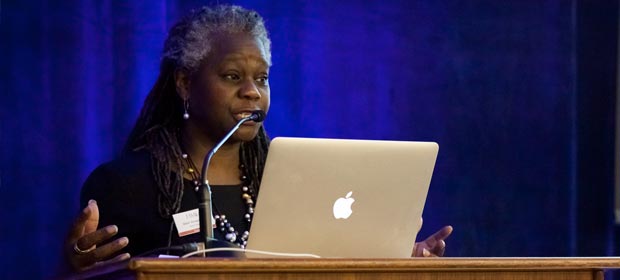Patient experience is now the biggest driver for healthcare, Prof. Dame Donna Kinnair. Clinical Director, Emergency Medicine, BHRUT Hospital (Barking, Havering and Redbridge University Hospitals NHS Trust) told the Conference.
Patient experience is now the biggest driver for healthcare, Prof. Dame Donna Kinnair. Clinical Director, Emergency Medicine, BHRUT Hospital (Barking, Havering and Redbridge University Hospitals NHS Trust) told the Conference.

She said that in the UK, hospitals did not get paid by health insurers if an insured patient developed a pressure sore. “In the UK, ten per cent of funding is dependent on what the patient says and if patients say the service is not good, then the hospital doesn’t get that ten per cent.
Prof. Dame Kinnair said there had been no obvious prior indications that there were issues with Mid Staff – other hospitals had higher crude mortality rates at the time. But in Mid Staff, a big issue was thatpatients were very dissatisfied with outcomes.
“In the UK we need a different way of looking at quality and we need people dedicated to improving quality.”
If patients say the service is not good, then the hospital doesn’t get that ten per cent.
BHRUT Hospital operates across two main sites: Queen’s Hospital in Romford and King George Hospital in Goodmayes. It serves a population of about one million people and is one of the largest acute hospital trusts in England.
BHRUT runs two A&E departments at King George and Queen’s hospitals.
Queen’s Hospital is a large acute hospital which opened its award-wining building to patients in 2006. It operates a full A&E service with trauma centre and a hyper-acute stroke unit. It has the largest maternity unit in the country, a renal dialysis unit and a specialist neurosciences centre and a joint cancer centre run with St Bartholomew’s Hospital London.
King George Hospital was built in 1993 and services provided here include an A&E department, a maternity unit and a chemotherapy day unit.
Speaking on “A new model of commissioning” Prof. Dame Kinnair told the Conference how the commissioning of health and social services had been changed in the UK, where a new system came into place this year.
She said the UK Government abolished the Primary Care Trusts, which up to then had commissioned services for local people and introduced a new system of clinical commissioning groups (CCGs) made up of local GPs to commission all secondary care services. The thinking behind this was that it would give patients more power, focus on healthcare outcomes and quality standards, and give frontline professionals much greater freedoms and a strong leadership role.
CCGs now cover the whole country and are accountable for how they use resources to secure quality care. CCGs are responsible for securing the highest quality and outcomes for patients within the resources available to them.
She said she had been challenged to get together a system to train and educate doctors to take over the role of commissioning. They had got the doctors together and worked with them to encourage a smooth handover of commissioning services. Eighty per cent of our GPs involved in clinical commission felt they lacked the skills to be commissioners.
Most were deemed to be fit to commission services and the system moved from about 154 primary care trusts being responsible for commissioning GP, primary care and acute services to 212.
“The role is commissioning for quality”, she said. “The process includes population needs, service design/redesign, service delivery, CCG development and safe transition.
Prof. Dame Kinnair said that there were a number of challenges of monitoring. It had to be asked if we were really monitoring the things that made a difference or was it the things that were easy to count. We had to look at self assessments versus imposed assessments, the question of obtaining good whole systems data, shaping the structure of supply, ensure right governance and skills.

